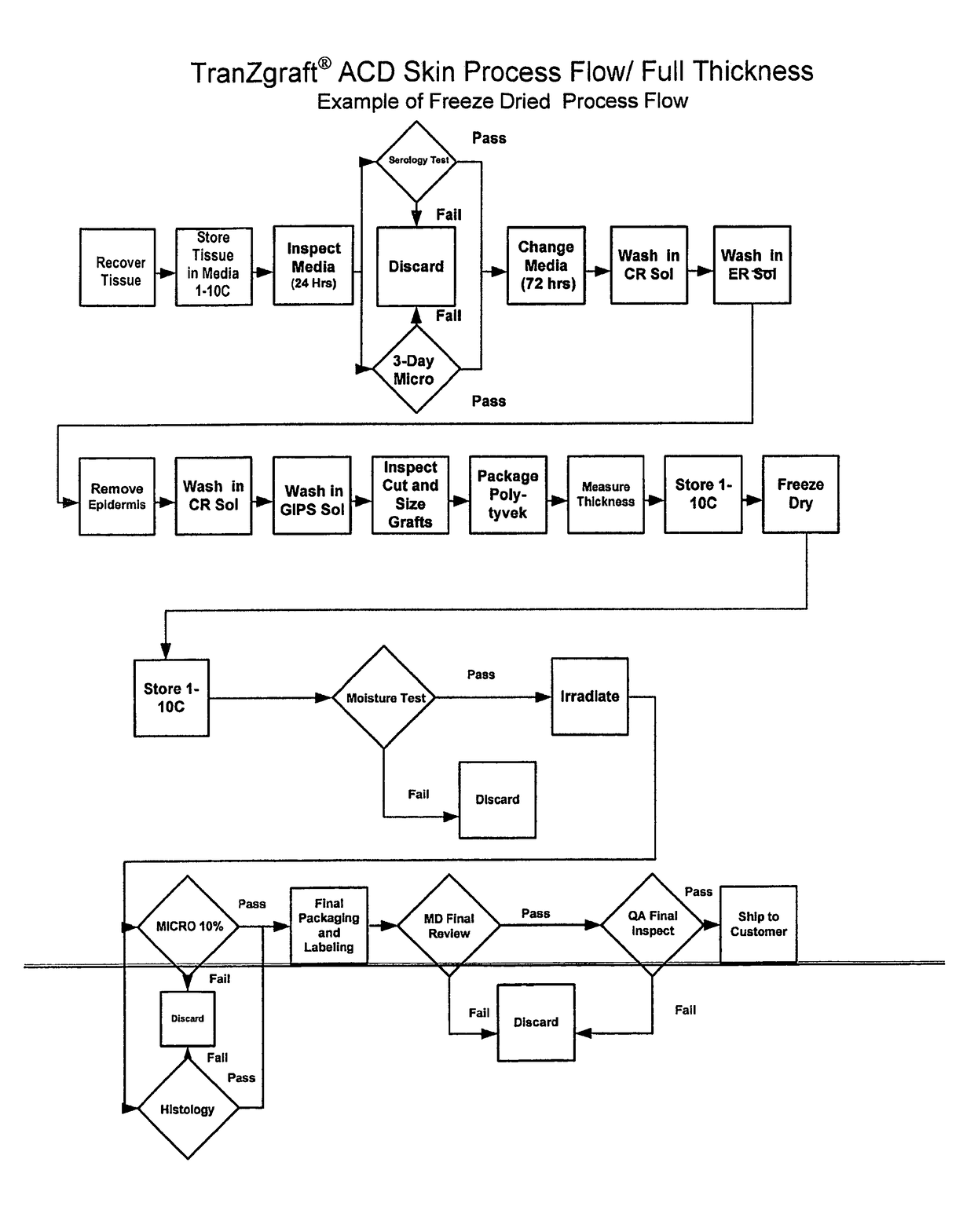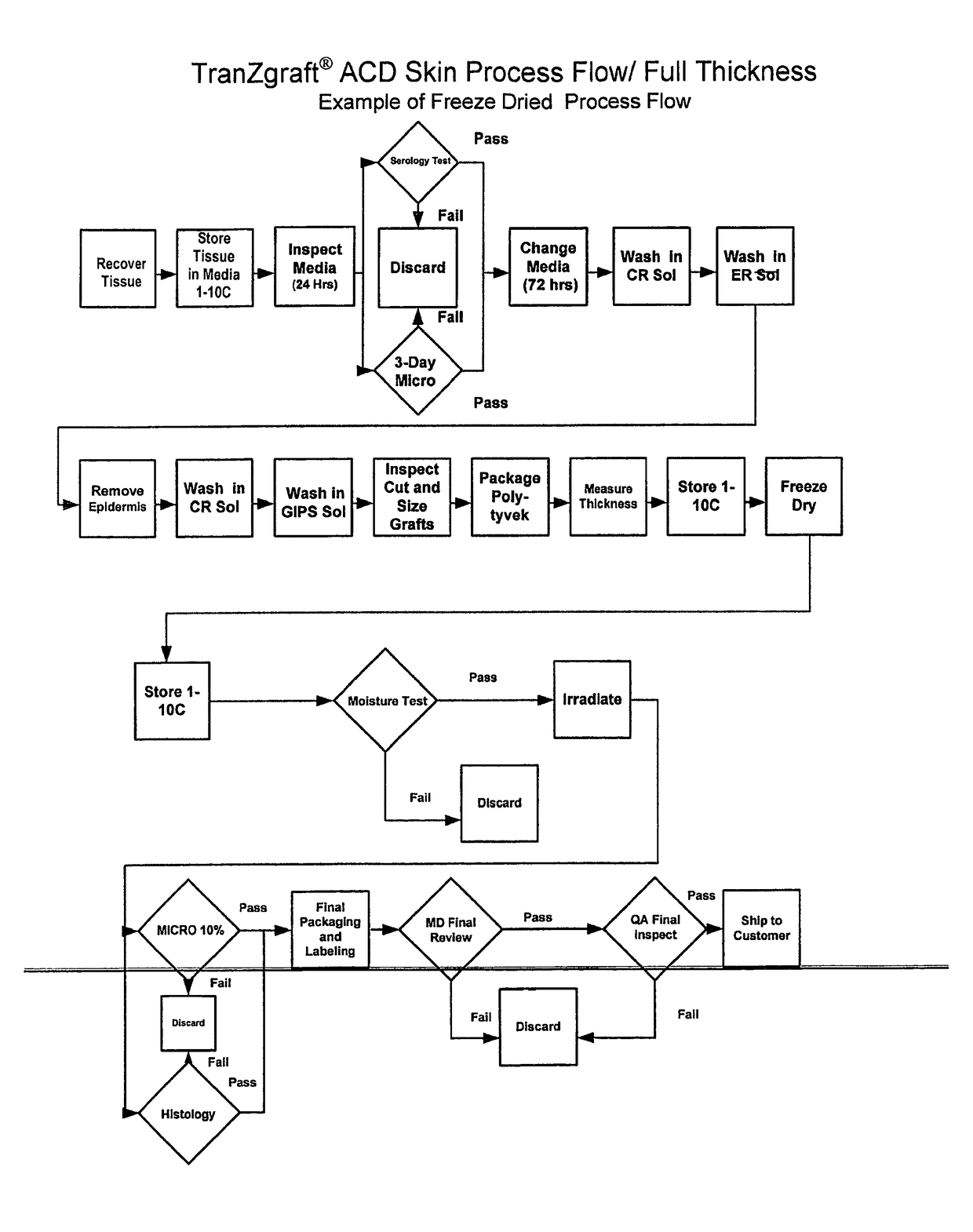Acellular dermal allografts and method of preparation
a technology of dermal allografts and dermal cells, which is applied in the field of tissue processing and grafting, can solve the problems of short storage life, many limitations of fresh skin allografts, and loss of life, and achieve the effects of reducing bioburden, reducing cellular content, and reducing immunogenicity properties
- Summary
- Abstract
- Description
- Claims
- Application Information
AI Technical Summary
Benefits of technology
Problems solved by technology
Method used
Image
Examples
Embodiment Construction
[0028]The current invention provides a method for preparing an acellular dermal (ACD) allograft and the allograft produced thereby, where the allograft is sterile or has a greatly reduced bio-burden, contains no viable cells, and has a long shelf life, i.e. can be easily used by surgeons in soft tissue replacement or repair for a period of time of up to at least about 3 years. The ACD remains pliable. The process of preparation includes exposure of the allograft to radiation, preferably γ-radiation, more preferably Cobalt60 or Cesium137 radiation, although other sources and types of energy such as x-ray and electron beam may be used. The preferred timing of the irradiation step is towards the end of the overall process, after removal of cells and the epidermis from the allograft and after its packaging, i.e. the allograft preferably is “terminally sterilized.” The terminally sterilized allograft in its package remains sterile until opened and exposed to the environment at the time o...
PUM
 Login to View More
Login to View More Abstract
Description
Claims
Application Information
 Login to View More
Login to View More - R&D
- Intellectual Property
- Life Sciences
- Materials
- Tech Scout
- Unparalleled Data Quality
- Higher Quality Content
- 60% Fewer Hallucinations
Browse by: Latest US Patents, China's latest patents, Technical Efficacy Thesaurus, Application Domain, Technology Topic, Popular Technical Reports.
© 2025 PatSnap. All rights reserved.Legal|Privacy policy|Modern Slavery Act Transparency Statement|Sitemap|About US| Contact US: help@patsnap.com



